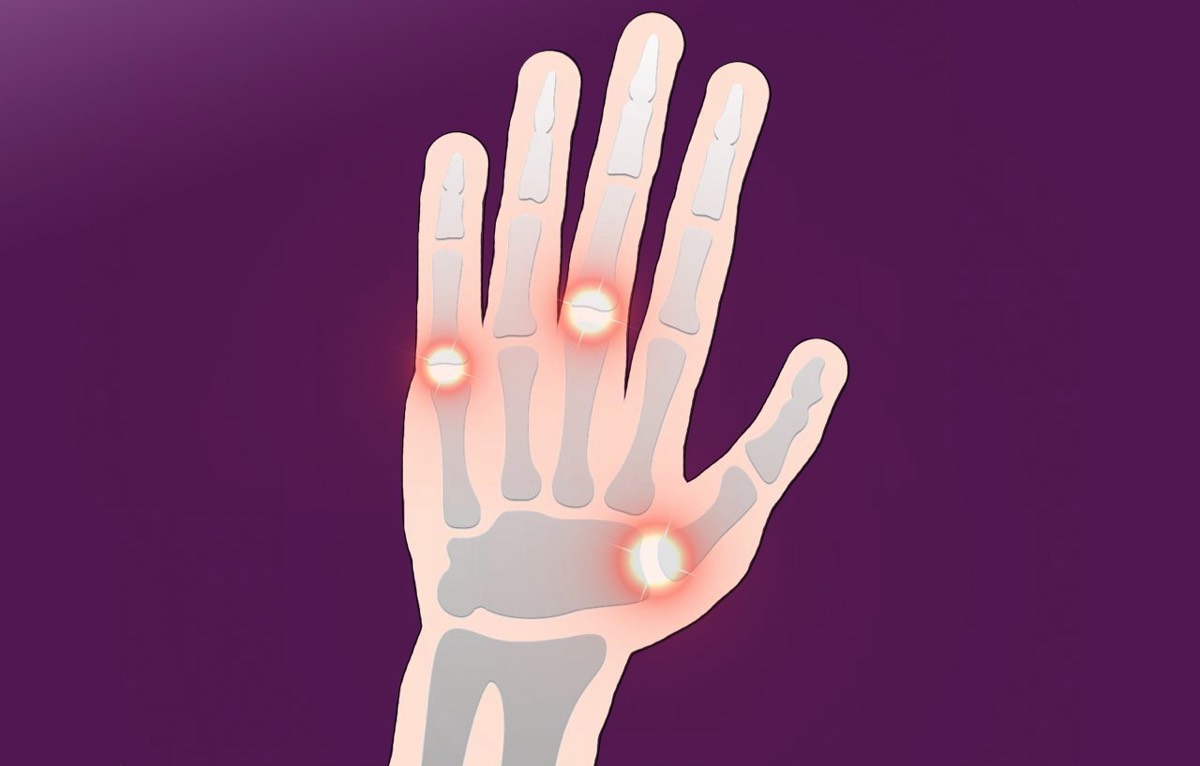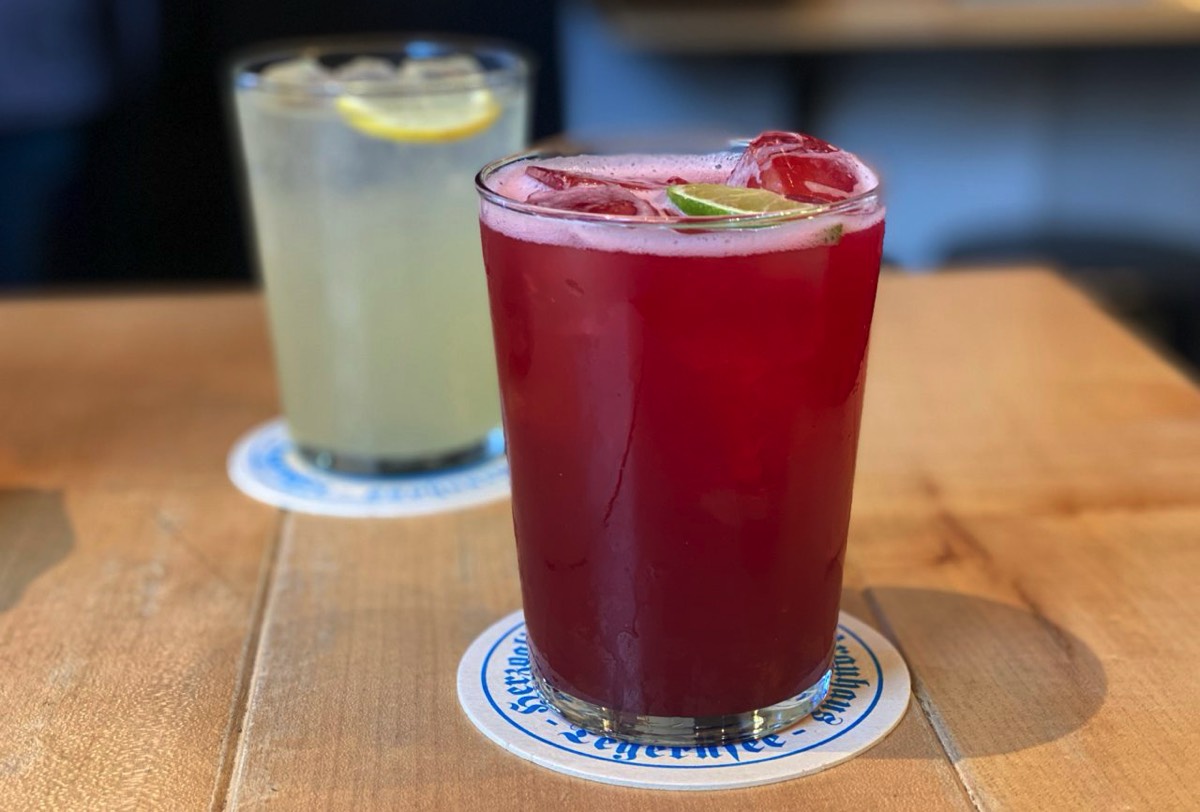What is gout?
For many people gout disease is a sheer nightmare. Excruciating episodes of pain, especially in the joints, can transform every step into torment. In the US alone 3 million individuals are affected. That makes gout the most widespread form of arthritis. As a consequence of an impaired metabolism uric acid accumulates in the blood and can be deposited in the form of uric acid crystals in joints, tendons, the skin or other parts of the body. These crystals lead to inflammations and pain in the affected areas. Gout is not only a danger for joints, but if untreated a potentially lethal danger for the cardiovascular system.

The disease itself has been known for centuries. In the past gout virtually became a status symbol of wealth as it came with a diet that contained way too much meat and alcohol and only little fruit and vegetables.
How much does diet affect gout?
Many studies show that gout has a very strong relation to the life style. A diet high in animal products contains great amounts of purines. They are an important constituent of cells and form the basis of all animal and plant life. In the body purines are degraded to uric acid, which is a waste product of our metabolism and of no further use for the body. Uric acid is excreted with the urine by the kidneys. A one-sided and unhealthy diet may however push this system to its limit.
For a long time dietary interventions to treat gout had a one-sided focus on the intake of purines. General recommendations include avoiding or restricting foods that are high in purines, such as liver, organ meats, fish, lentils, peas or poppy seeds. In fact, all foods contain purines so that strictly speaking a purine-free diet is not possible. Foods that are high in purines of animal origin are most problematic – plant-based foods usually contain other beneficial compounds that can for example improve the excretion of uric acid and are usually a lot less problematic.
The restriction of dietary purines can be a great relief for the metabolism but has one downside. Only a fraction of the purine load originates from dietary sources, in large part purines are synthesized by the liver. Most people with gout produce too much uric acid and a low purine diet only solves part of the problem.
For a long time dietary interventions to treat gout had a one-sided focus on the intake of purines. General recommendations include avoiding or restricting foods that are high in purines, such as liver, organ meats, fish, lentils, peas or poppy seeds. In fact, all foods contain purines so that strictly speaking a purine-free diet is not possible. Foods that are high in purines of animal origin are most problematic – plant-based foods usually contain other beneficial compounds that can for example improve the excretion of uric acid and are usually a lot less problematic.
The restriction of dietary purines can be a great relief for the metabolism but has one downside. Only a fraction of the purine load originates from dietary sources, in large part purines are synthesized by the liver. Most people with gout produce too much uric acid and a low purine diet only solves part of the problem.
How does drinking alcohol affect gout?
Alcohol is a huge risk factor – it is one of the main triggers of gout attacks. However, not all sorts possess the same risk potential. The most dangerous alcoholic beverage is beer. Moderate amounts of wine do not seem to have a negative effect but in general excessive consumption of alcohol is always problematic. The degradation of alcohol leads to the formation of lactates which inhibit the excretion of uric acid!
Interestingly, people have been eating too much meat and drinking too much alcohol for centuries, but nevertheless gout almost completely disappeared in the beginning of the 19th century. It was only in the last few decades that gout experienced a revival of an epidemic proportion. It is therefore very likely that there are more factors in play than purines and alcohol.
Interestingly, people have been eating too much meat and drinking too much alcohol for centuries, but nevertheless gout almost completely disappeared in the beginning of the 19th century. It was only in the last few decades that gout experienced a revival of an epidemic proportion. It is therefore very likely that there are more factors in play than purines and alcohol.

There is growing evidence that the sudden and extreme rise of the intake of fructose in the form of added sugar or high fructose corn syrup (HFCS) in soft drinks and sweets boost the uric acid metabolism. This is because fructose increases the levels of uric acid in the blood. Increased sugar intake is also associated with obesity which further aggravates the medical condition.
How can you prevent gout attacks?
There are some foods that have a beneficial effect on gout, for example coffee (also decaffeinated). To exert a noticeable effect one would, however, have to drink at least four cups a day. Dairy products have an anti-inflammatory effect and have the ability to weaken the ailment. Fat reduced dairy products are a viable alternative if you want to avoid excess calories. Also, the ingestion of vitamin C has been positively linked with a reduced risk of gout attacks.
Dehydration can increase the blood uric acid concentration. One cannot emphasize enough how important it is to ingest enough liquids. It should be enough to generate at least 2.5 liters of urine as this tremendously supports the excretion of uric acid. Avoid alcoholic beverages and should you choose to have a drink – prefer wine over beer. Only eat moderate amounts of animal protein. A healthy and balanced diet is the best prevention of gout.
In our app OxiPur you can find a ready-made profile that already considers all relevant dietary recommendations and pre-rates the foods.
Learn more about this topic in our blog.
Back to overview
Dehydration can increase the blood uric acid concentration. One cannot emphasize enough how important it is to ingest enough liquids. It should be enough to generate at least 2.5 liters of urine as this tremendously supports the excretion of uric acid. Avoid alcoholic beverages and should you choose to have a drink – prefer wine over beer. Only eat moderate amounts of animal protein. A healthy and balanced diet is the best prevention of gout.
In our app OxiPur you can find a ready-made profile that already considers all relevant dietary recommendations and pre-rates the foods.
Learn more about this topic in our blog.
Back to overview

